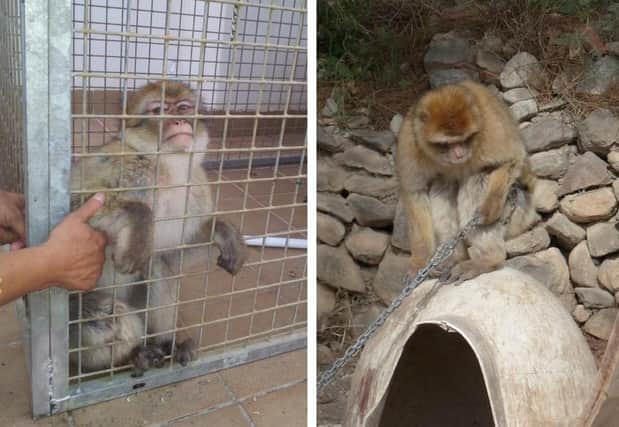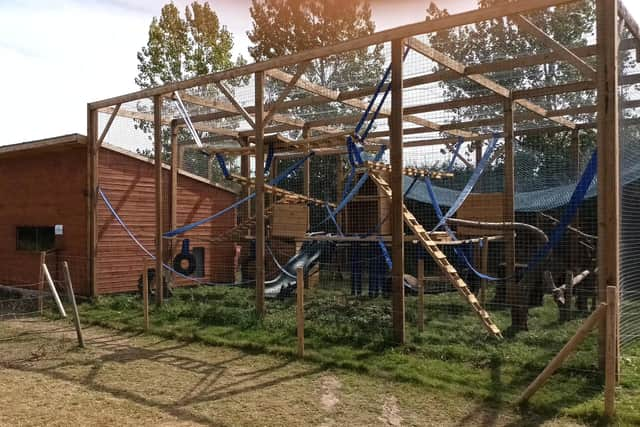Monkeys with a sad history to make a happy home at Ark Wildlife Park near Boston


The team at Ark wildlife park in Stickney are now making final preparations for their special new residents.
This Saturday will see the arrival of Dennis and Ciri, two Barbary macaques.
Advertisement
Advertisement
Later this month a further three Barbary macaques will be making the Ark their home - Aurora, Conny and Jana.


Dennis was said to have been confiscated at the Serbian border after attempts to smuggle him out of the EU, while Ciri was found abandoned in Spain, after being privately owned.
Aurora was confiscated from an owner in Spain after reportedly being kept chained up in a garden, while Conny and Jana were found wandering as strays in France and Spain.
The Barbary macaque is native to the Atlas Mountains of Morocco and Algeria, along with a small population that was introduced in Gibraltar.
Advertisement
Advertisement
The animals are classified as endangered, a large part of this resulting from being taken from the wild to be sold as pets, along with habitat loss due to deforestation.
A spokesperson for the Ark said: “The Ark’s ethos is to give homes to animals rescued from the exotic pet trade, with the vast majority of it's residents having come from unsuitable or sometimes illegal homes.
“The macaques have spent many years in captivity, unfortunately these primates would not survive being introduced into the wild, being rescues, many having been found astray either dumped or escaped from their owners we have little to no knowledge of their history, making it impossible to determine if they were taken from the wild or born in captivity to supply the illegal trade in these animals.
"This latest project was made possible as part of a joint project between the Ark and AAP an organisation based in the Netherlands and Spain with a world wide reputation for exotic animal rescue."
Advertisement
Advertisement
This will be the second primate rescue project the Ark has undertaken alongside AAP. In 2019 the sanctuary welcomed four Rhesus macaques, two of these being ex-laboratory monkeys with mental health issues.
The spokesperson added: “Since their arrival the four Rhesus macaques have gone from strength to strength showing great improvements in both physical and mental health, the success of that project laid the foundations for this new rescue project giving homes to the larger cousin of the Rhesus macaque-the Barbary.
“Since the easing of lockdown the Ark has had to start ramping up its rescue programme again, as well as the imminent arrival of these new primates the Ark has recently offered a home to a pair of banded mongoose - Mungo and Jerry – who were found wandering in a town in France.
"Later in the year will see the start of construction of a new nocturnal house to give a home to a group of kinkajous (a South American relative of the raccoon) who were seized from an illegal animal dealer in Germany.”
The Ark has also recently finished construction of a new wildcat house that will welcome more rescued big cats this autumn.